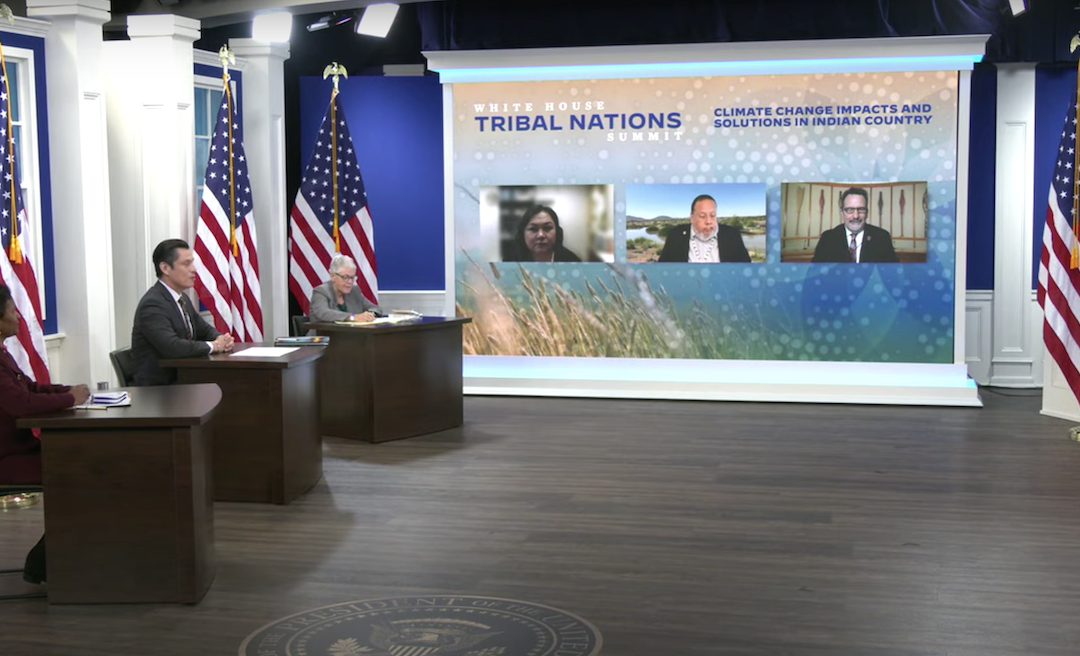WASHINGTON – Tribal leaders Tuesday applauded President Joe Biden’s efforts to integrate indigenous knowledge into the administration’s climate change efforts during a virtual White House Tribal Nations Summit.
Biden kicked off the two-day summit Monday, an annual event started by President Barack Obama but suspended during President Donald Trump’s term in the White House. He issued five initiatives to protect American Indians, including a memo that aims to use indigenous environmental knowledge as a central facet of the nation’s strategy to fight climate change. Biden also signed the Infrastructure Investment and Jobs Act Monday, with more than $13 billion in direct investments to Indian Country.
Stephen Roe Lewis, Governor of the Gila River Indian Community, said Biden’s recognition of the importance of tribal voices in climate change discussions is groundbreaking.
“This is such a strong shift from the past that I simply want to acknowledge and express our deep appreciation,” Lewis said.
Lewis said the Gila River Indian Community’s restoration of the Gila River is an example of how an indigenous practice can improve national environmental crisis responses. Wanting to heal their river and restore their land, Indian Gila River community members worked with contractors to develop Managed Aquifer Recharge facilities, which can store and release large amounts of water while reducing vulnerability to climate change and restoring groundwater balance, according to a UNESCO report.
The MAR facilities quickly became a crucial water supply innovation: In an agreement with the Arizona Water Bank, the Gila River Indian Community rerouted some of their resources to Lake Mead in Nevada and Arizona, helping raise its water levels over 8 feet, Lewis said.
Environmental Quality Council chair Brenda Mallory said government agencies will learn from tribal knowledge by engaging tribes directly rather than using their successful practices without discussion.
“This is knowledge tribes own,” Mallory said, “Knowledge holders will control access to this knowledge, and we start this effort with that in mind.”
Melanie Bahnke, president of Kawerak Inc., an organization that assists Alaskan Native people, said Biden’s financial investments in Indian County will help with unique challenges faced by tribal nations in dealing with climate change, including higher susceptibility to wildfires, flooding, global warming and food insecurity.
“We are a part of the ecosystem,” Bahnke said. “We’re not just users of it. We feel the changes to our environment before scientists can even detect it.”

